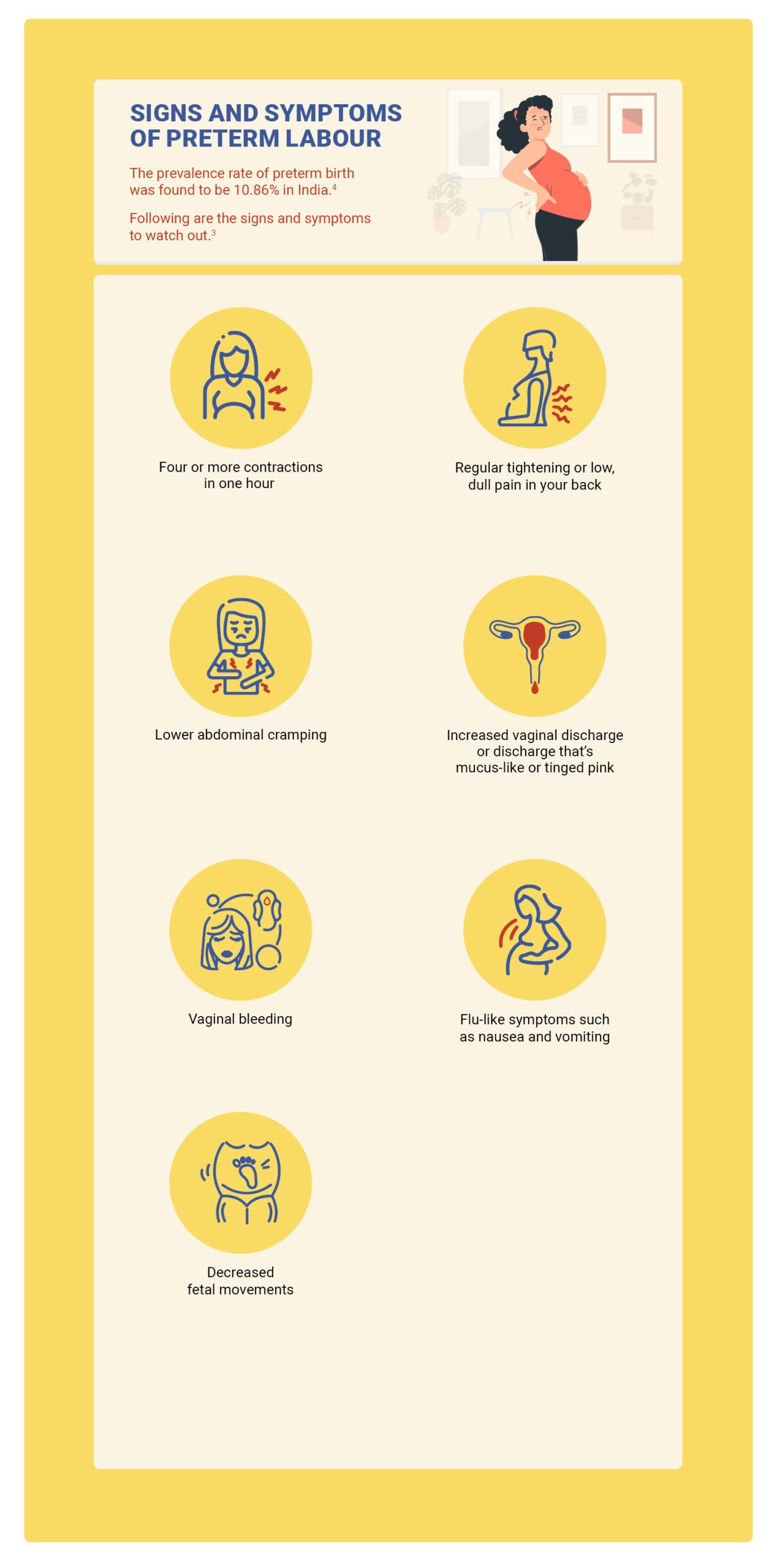Dealing with Preterm Labour
3 mins read
Decoding the Science of Preterm Labour
Preterm labour happens when regular contractions lead to the opening of your cervix after week 20 and before week 37 of pregnancy. Preterm labour can result in premature birth. The earlier premature birth occur, the greater the health risks for your baby. Many premature babies (preemies) require special care in the neonatal intensive care unit. Preemies can also have long-term mental and physical disabilities.1
What is preterm birth?2
Preterm birth is the birth of a baby before 37 weeks. Preterm babies might be born with serious health problems. Some health problems, like cerebral palsy, can be lifelong. Other problems, such as learning disabilities, may show up later in childhood or even in adulthood.
Can preterm labour stop on its own?2
In some cases, yes. For about 3 in 10 women, preterm labour stops on its own. If it does not stop, treatments may be given to try to delay birth. In some cases, these treatments may reduce the risk of complications if the baby is born.
What triggers preterm labour?3
There isn’t one trigger for preterm labour. Several factors can play a role in your body going into labour too soon. Some of these factors are related to your medical history, previous pregnancies, and lifestyle. Sometimes people with no known risk factors have preterm labour.
What are the signs and symptoms of preterm labour?2,3
Preterm labour contractions result into changes in the cervix. The changes include effacement (thinning of the cervix) and dilation (opening of the cervix). Signs and symptoms include the following:
- Four or more contractions (or tightening and relaxing of the muscles in your uterus) in one hour that don’t go away after changing your position or relaxing
- Regular tightening or low, dull pain in your back that either comes and goes or is constant (but isn’t relieved by changing positions or other comfort measures)
- Mild abdominal cramps, with or without diarrhoea
- A change in type of vaginal discharge—watery, bloody, or with mucus
- An increase in the amount of discharge
- Pelvic or lower abdominal pressure
- Constant, low, dull backache
- Regular or frequent contractions or uterine tightening, often painless
- Ruptured membranes (your water breaks with a gush or a trickle of fluid)
What are the risk factors?1
Preterm labour can affect any pregnancy. Many factors have been associated with an increased risk of preterm labour, however, including:
- Previous preterm labour or premature birth, particularly in the most recent pregnancy or in more than one previous pregnancy
- Pregnancy with twins, triplets or other multiples
- Shortened cervix
- Problems with the uterus or placenta
- Smoking cigarettes or using illicit drugs
- Certain infections, particularly of the amniotic fluid and lower genital tract
- Some chronic conditions, such as high blood pressure, diabetes, autoimmune disease and depression
- Stressful life events, such as the death of a loved one
- Too much amniotic fluid (polyhydramnios)
- Vaginal bleeding during pregnancy
- Presence of a fetal birth defect
- An interval of less than 12 months — or of more than 59 months — between pregnancies
- Age of mother, both young and older










